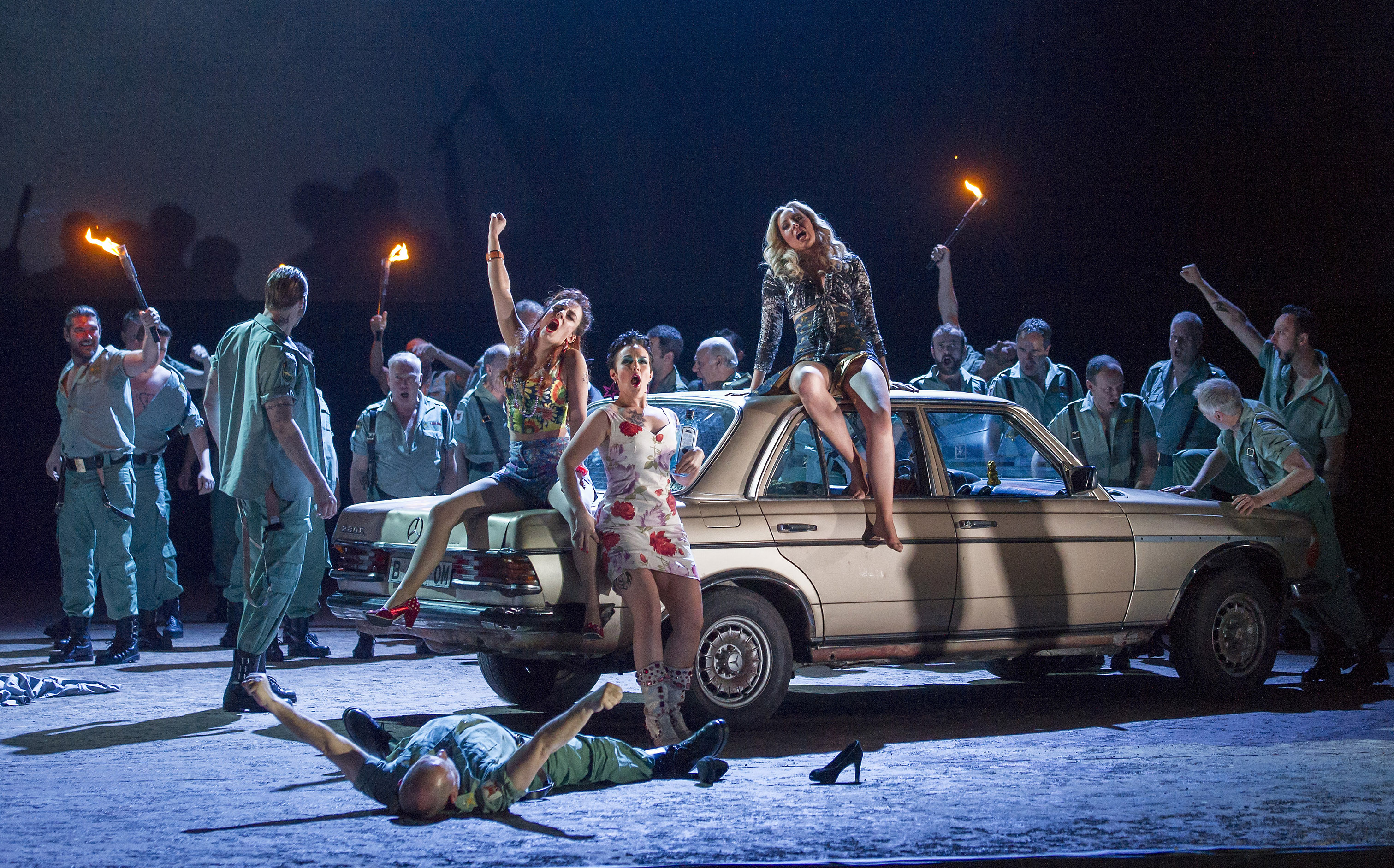London Coliseum, 20 May 2015
Calixto Bieito’s approach to Carmen is a world away from the tourist image of Spain and there’s not a flamenco dancer in sight. Instead we are at a nebulous crossing point somewhere in the late 1970s, surrounded by low life and dropouts living by the skin of their teeth. Even Escamillo is an alcoholic and obviously near the end of his career.
While this works well for much of the time it has a number of problems, not the least of which is the translation which often seems at odds with the action, but more importantly the score which is frequently optimistic and romantic when what we are witnessing is shabby to say the least. Moreover the characters do not compensate as they seem to know the world that they inhabit is going nowhere.
For much of the time this works well and the erupting sensuality and vulgarity are in keeping with the action, but there are too many occasions when we are left wondering why. In the opening scene the massed forces of soldiers impress but there is nobody else on stage; there is nobody for them to look at passing by .In fact they could be as abandoned in the desert as Lillas Pastia seems to be.
Thankfully the characterisation and singing more than compensate. Justina Gringyte is a blond bombshell of a Carmen, almost the opposite of what one might expect, but there is nothing amiss with the intensity of her singing and the sensuality she brings to it. If she seems hard-bitten then this is the way life has made her. Eric Cutler cuts a fine soldierly figure as Jose and has the strong upper register to match. Given that Eleanor Dennis is required to be extrovertly flighty as Micaela there is little reason for Jose to say no to Carmen.
Smaller parts are strongly cast and the chorus are strongly focussed throughout. Under Sir Richard Armstrong the orchestra plays with flair and often with an extravagant edge which works well even if it is at odds with what we are seeing.
The production can be seen in cinemas on 1 July.

